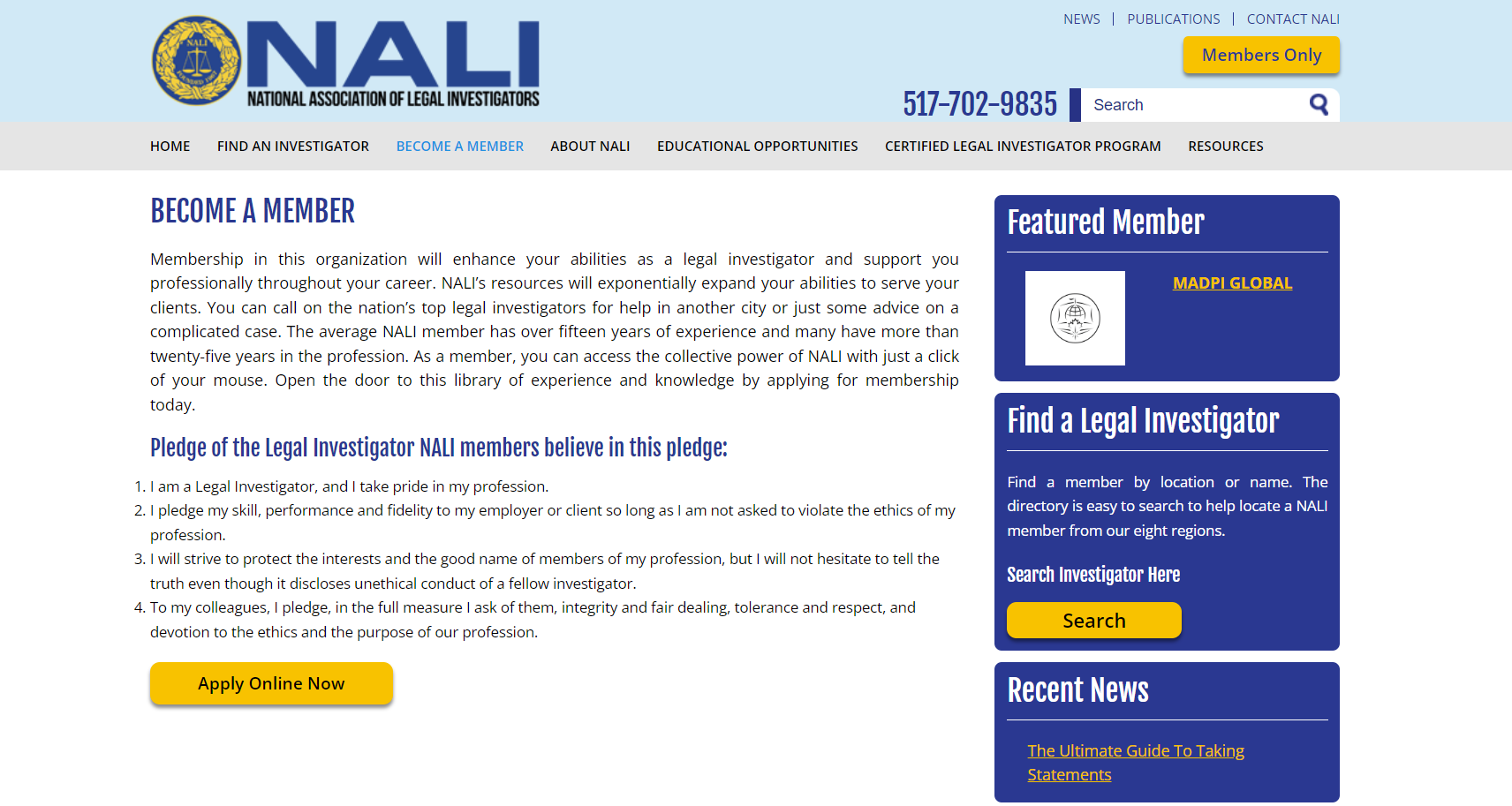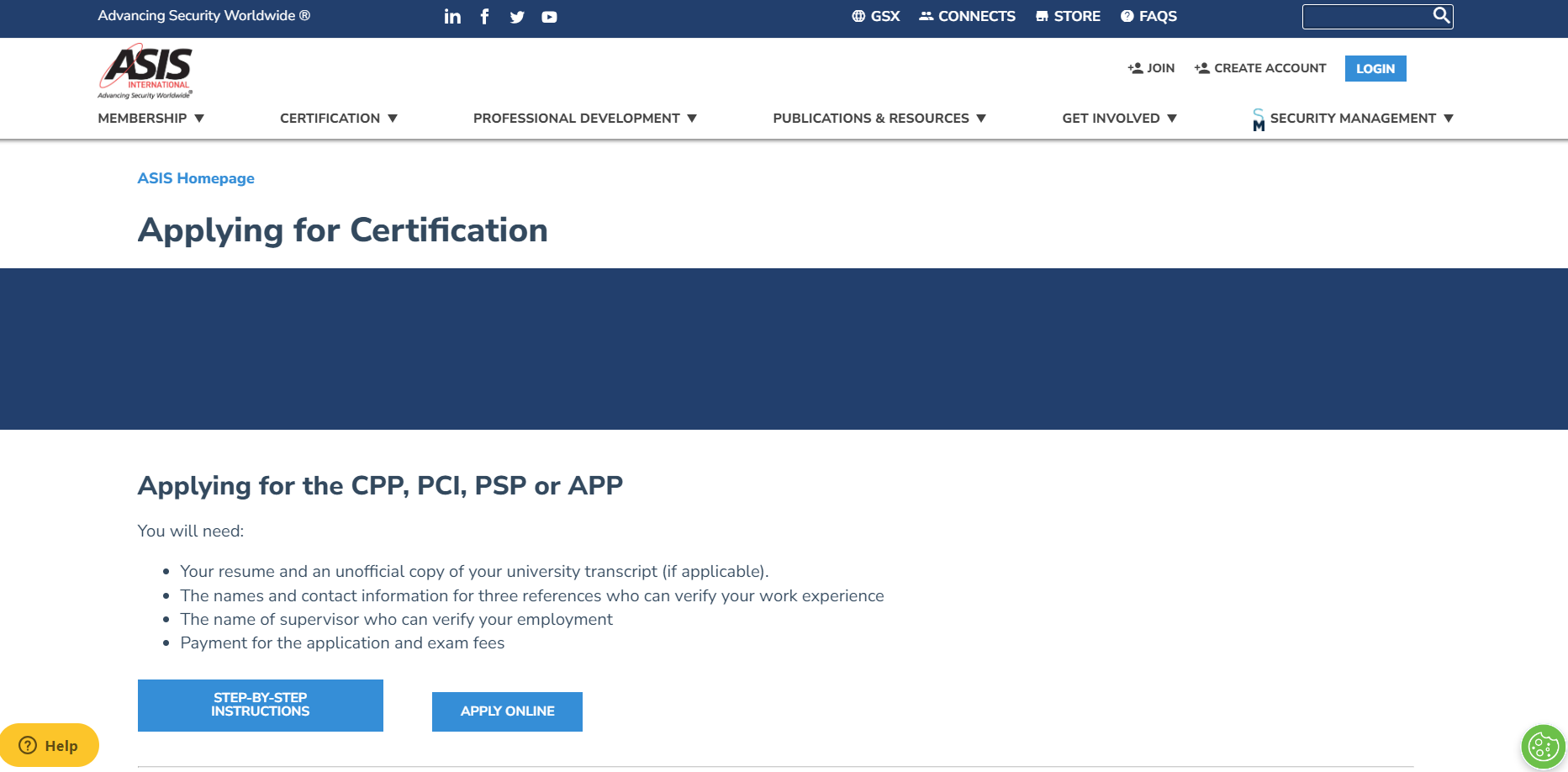
Suppose you’ve always been intrigued by the world of investigations and have a knack for unraveling mysteries. In that case, a career as a private investigator might be the perfect fit for you in Iowa. Private investigators play a crucial role in assisting individuals, businesses, and even law enforcement agencies in gathering information, uncovering facts, and solving cases. In addition to learning the ins and outs of investigation techniques, it is important to understand the legal aspects of running your own private investigation business.
Establishing an LLC in Iowa is popular for many private investigators as it provides legal protection and facilitates smooth business operations. This article will outline the steps you need to take to Become a Licensed Private Investigator in Iowa.
Webinarcare Editorial Team will help you gain knowledge through thorough research and market study. Before becoming a private investigator in Iowa, all the steps in this article must guide you.
On this page, you’ll learn about the following:
What is a Private investigator?
A private investigator in Iowa is a professional who conducts investigations, gathers information, and performs surveillance for individuals, businesses, and legal professionals. In Iowa, private investigators must be licensed by the Iowa Department of Public Safety – Administrative Services Division to operate within Iowa legally. They often work on various cases, including civil matters, insurance fraud, background checks, infidelity, missing persons, etc. These professionals use their skills and expertise to collect evidence, analyze information, and provide their clients with valuable insights to help them make informed decisions or resolve disputes.
Embarking on a journey to become a private investigator in Iowa is like entering a maze of possibilities where every corner holds a potential clue. As you uncover the secrets tucked away in the shadows, remember to secure your own path by learning how to start an LLC in Iowa. Establishing a legal entity shields you from liabilities and empowers you to navigate the investigative landscape with professionalism.
– WEBINARCARE EDITORIAL TEAM
How to Become a Private Investigator in Iowa
Suppose you’re considering becoming a private investigator in Iowa. In that case, it’s essential to understand the steps and requirements involved in obtaining your license and starting your professional journey. This step-by-step guide will walk you through becoming a private investigator in Iowa.
Step 1: Research The Requirements
Each state has its own set of requirements and regulations for becoming a licensed private investigator. The agency responsible for regulating private investigators in Iowa is the Iowa Department of Public Safety – Administrative Services Division. Familiarizing yourself with the specific requirements for obtaining a private investigator license in Iowa is important.
Some common requirements for obtaining a PI license in Iowa include:
- Age: Iowa requires individuals to be 18 or 21 to apply for a Private Investigator license.
- Citizenship: Applicants must be U.S. citizens or legal residents.
- Education: Iowa requires a high school diploma or GED, while others may require a degree in criminal justice or a related field.
- Experience: Iowa requires years of experience in law enforcement, security, or other related fields.
- Background Check: Applicants will likely need to pass a background check, which may include fingerprinting and a criminal history check.
- Licensing Exam: Iowa requires applicants to pass a licensing exam that tests their knowledge of state laws, regulations, and general investigative techniques.
Becoming a private investigator is ideal if you want to start an LLC for your security company in Iowa. We recommend these LLC Formation Services in Iowa if you plan to form one.
Step 2: Obtain Education and Experience
As mentioned earlier, Iowa requires a certain level of education and experience to become a licensed private investigator. There are several educational paths you can pursue to prepare for a career as a private investigator, including:
- Degree Programs: Some Iowa colleges and universities offer associate’s or bachelor’s degree programs in criminal justice, forensic science, or a related field. These programs typically cover criminal law, investigation techniques, and crime scene analysis.
- Certificate Programs: Iowa community colleges and vocational schools offer certificate programs in private investigation or a related field. These programs generally take less time to complete than a degree program and focus on specific skills and knowledge needed for a career in private investigation.
- Online Courses: Numerous online courses and training programs cover various aspects of private investigation. These courses can be a convenient and affordable way to gain knowledge and skills in the field.
In addition to formal education, gaining practical experience in a related field can be invaluable for aspiring private investigators. Some possible avenues for gaining relevant experience include:
- Law Enforcement: Working in law enforcement, such as a police officer or detective, can provide valuable experience in investigation and surveillance techniques.
- Military Service: Military personnel, particularly those in intelligence or security roles, often develop skills that can be transferred to a career as a private investigator.
- Security Work: Working as a security guard or in corporate security can provide experience in surveillance, risk assessment, and incident response.
- Legal Field: Paralegals and legal assistants often conduct research and investigations for attorneys, which can provide a foundation for a career as a PI.
Here is the breakdown of the education and practical experience in becoming a licensed private investigator in Iowa.
| Education | Experience |
| Degree Programs | Law Enforcement |
| Certificate Programs | Military Service |
| Online Courses | Security Work |
| Legal Field |
Step 3: Apply For a Private Investigator License
Once you have met the education and experience requirements in Iowa, you can begin applying for a private investigator license in Iowa. This typically involves applying to the Iowa Department of Public Safety – Administrative Services Division and any required documentation, fees, and proof of insurance.
In Iowa, the application process may include the following steps:
1. Complete the Private Investigator License Application
Obtain and complete the PI license application from the Iowa Department of Public Safety – Administrative Services Division. Be sure to provide accurate and complete information, as any discrepancies could result in delays or denial of your application.
2. Submit the Required Documentation
Along with your completed application, you must submit various documents, such as proof of education and experience, a copy of your driver’s license, and any required affidavits or forms.
3. Pay Application and Licensing Fees
There may be fees associated with the application and licensing process in Iowa. Be sure to include these fees when submitting your application. The usual fee for the application and licensing process for the Iowa private investigator costs $100.
4. Obtain Liability Insurance
Iowa doesn’t require obtaining liability insurance when you become an Iowa private investigator, but it is safe for you to have it.
5. Pass the Licensing Exam
If required in Iowa, you must pass a licensing exam that tests your knowledge of state laws, regulations, and general investigative techniques.
6. Background Check and Fingerprinting
As part of the application process, you will likely need to undergo a background check and submit fingerprints to the Iowa Department of Public Safety – Administrative Services Division.
Step 4: Maintain Your Private Investigator License
Once you have obtained your private investigator license in Iowa, it is important to maintain your license in good standing. This may involve completing continuing education requirements, renewing your license periodically, and adhering to any regulations and ethical standards set forth by the Iowa Department of Public Safety – Administrative Services Division. When you become a fully-fledged Iowa private investigator, it is best to consider other certifications for your career development.
Below are two professional credential options that private investigators can pursue.
Certified Legal Investigator
The Certified Legal Investigator (CLI)® is a professional certification program offered by the National Association of Legal Investigators (NALI). It is designed for private investigators who specialize in legal investigations and wish to demonstrate proficiency and expertise in the field.

To become a Certified Legal Investigator (CLI)®, candidates must meet certain eligibility requirements, including having a minimum of five years of investigative experience and a certain number of those years working on legal investigations. Candidates must also pass a written examination that covers topics such as legal ethics, civil and criminal law, evidence collection and preservation, and witness interviews.
By earning the CLI certification, investigators show they have high competency and professionalism in legal investigations and adhere to the highest standards of ethics and integrity. The legal community recognizes the certification and can help investigators gain credibility and recognition in the field.
You can visit NALI’s CLI requirement page for the most up-to-date certification requirements.
Professional Certified Investigator (PCI)®
The Professional Certified Investigator (PCI)® is a professional certification program offered by ASIS International, a global association for security management professionals. The certification is designed for private investigators and security professionals conducting corporate, government, or non-profit investigations.

To become a Professional Certified Investigator (PCI)®, candidates must meet certain eligibility requirements, including having a minimum of five years of investigative experience and a certain number of those years working in a supervisory or management role. Candidates must also pass a written examination that covers topics such as investigation planning, case management, evidence collection and preservation, and legal and ethical considerations.
By earning the PCI certification, investigators show they have high competency and professionalism when conducting investigations and adhere to the highest standards of ethics and integrity. The certification is recognized by employers, clients, and industry peers and can help investigators advance their careers and gain credibility in the field.
You can visit ASIS’ eligibility requirements page for the most up-to-date information regarding PCI certification requirements.
Recommended: Begin your journey to become a private investigator with the first bold step by using Legalzoom’s LLC formation services. When you start an LLC with Legalzoom, you’re not just making a business transaction, you’re carving out a future in the security industry. Even making your own security company, it is best to hire an LLC services. That’s why we recommend –
– LegalZoom – ($0 + State Filling Fees)
How Much Does a Private Investigator Make?
The salary of a private investigator varies based on experience, location, and type of work. According to the Bureau of Labor Statistics, the average annual salary of a private investigator in the United States is $50,510.
FAQs
Also Read
- Become a Private Investigator in Alabama
- Become a Private Investigator in Alaska
- Become a Private Investigator in Arizona
- Become a Private Investigator in Arkansas
- Become a Private Investigator in California
- Become a Private Investigator in Colorado
- Become a Private Investigator in Connecticut
- Become a Private Investigator in DC
- Become a Private Investigator in Delaware
- Become a Private Investigator in Florida
- Become a Private Investigator in Georgia
- Become a Private Investigator in Hawaii
- Become a Private Investigator in Idaho
- Become a Private Investigator in Illinois
- Become a Private Investigator in Indiana
- Become a Private Investigator in Iowa
- Become a Private Investigator in Kansas
- Become a Private Investigator in Kentucky
- Become a Private Investigator in Louisiana
- Become a Private Investigator in Maine
- Become a Private Investigator in Maryland
- Become a Private Investigator in Massachusetts
- Become a Private Investigator in Michigan
- Become a Private Investigator in Minnesota
- Become a Private Investigator in Mississippi
- Become a Private Investigator in Missouri
- Become a Private Investigator in Montana
- Become a Private Investigator in Nebraska
- Become a Private Investigator in Nevada
- Become a Private Investigator in New Hampshire
- Become a Private Investigator in New Jersey
- Become a Private Investigator in New Mexico
- Become a Private Investigator in New York
- Become a Private Investigator in North Carolina
- Become a Private Investigator in North Dakota
- Become a Private Investigator in Ohio
- Become a Private Investigator in Oklahoma
- Become a Private Investigator in Oregon
- Become a Private Investigator in Pennsylvania
- Become a Private Investigator in Rhode Island
- Become a Private Investigator in South Carolina
- Become a Private Investigator in South Dakota
- Become a Private Investigator in Tennessee
- Become a Private Investigator in Texas
- Become a Private Investigator in Utah
- Become a Private Investigator in Vermont
- Become a Private Investigator in Virginia
- Become a Private Investigator in Washington
- Become a Private Investigator in West Virginia
- Become a Private Investigator in Wisconsin
- Become a Private Investigator in Wyoming
How to Save Money While Starting a Becoming Private Investigator in Iowa
One of the first things you can do to save money when starting your career as a private investigator in Iowa is to carefully consider your business structure. Choosing the right legal entity for your business can have a big impact on your expenses, so it’s worth doing some research and seeking professional guidance. For example, forming a limited liability company (LLC) may provide you with liability protection and tax advantages, which can ultimately save you money in the long run.
Another way to save money as a new private investigator is to start small and gradually grow your business. Instead of investing in expensive equipment and office space right away, consider starting out with the essentials and upgrading as your business grows. By keeping your overhead costs low in the beginning, you can minimize the financial risks associated with starting a new business and ensure a smoother transition into the world of private investigation.
When it comes to acquiring equipment for your investigative work, it’s important to strike a balance between quality and cost. While it may be tempting to splurge on the latest gadgets and technology, it’s essential to prioritize functionality and value for money. Consider purchasing second-hand or refurbished equipment, exploring discounts and promotions, and negotiating with suppliers to get the best deals. With a bit of research and resourcefulness, you can save a significant amount of money on essential equipment without compromising on quality.
Networking is another essential aspect of saving money as a new private investigator in Iowa. Building relationships with other professionals in the industry can open up opportunities for collaboration, mentorship, and cost-saving initiatives. For example, forming partnerships with other private investigators or joining industry associations may allow you to access shared resources, leverage collective bargaining power, and benefit from group discounts on services and supplies.
In addition to networking, it’s also important to continuously educate yourself and stay up-to-date with industry trends and best practices. By investing in ongoing training and professional development, you can enhance your skills, expand your knowledge, and improve your competitive advantage as a private investigator. While training programs and certification courses may incur upfront costs, they can ultimately save you money by enabling you to work more efficiently, deliver better results, and attract higher-paying clients.
In conclusion, saving money while starting a career as a private investigator in Iowa requires a combination of strategic planning, financial discipline, and resourcefulness. By carefully managing your business structure, expenses, equipment, networking, and education, you can optimize your financial resources, maximize your earning potential, and lay a solid foundation for a successful and sustainable career in private investigation.
Conclusion
Becoming a licensed private investigator in Iowa requires meeting specific education and experience requirements, passing a licensing exam, and obtaining a PI license from the Iowa Department of Public Safety – Administrative Services Division. By following the steps outlined in this article, you can be well on your way to a rewarding career as a private investigator in Iowa.

